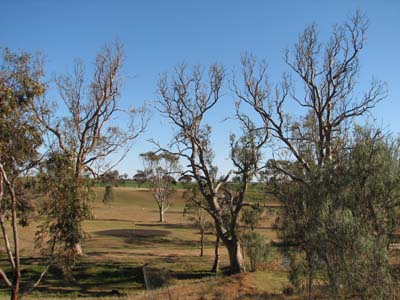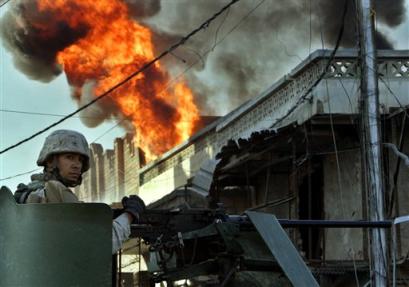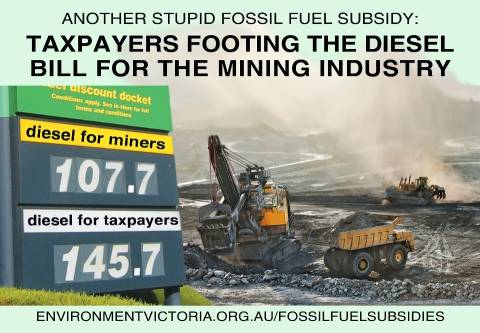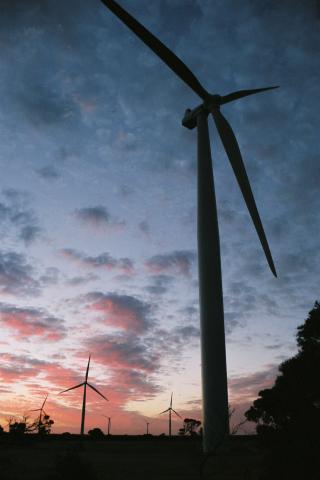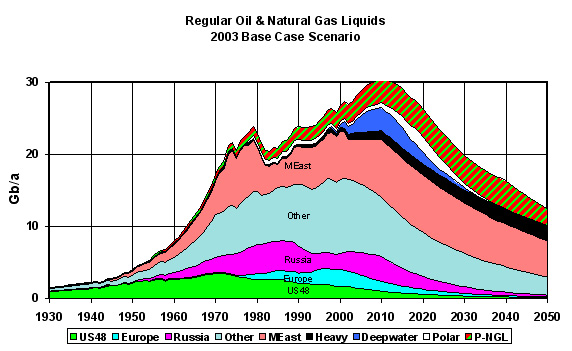The Howard Government announced a ban on research using human
embryonic stem cells in late 2004. One wonders whether this
decision was suggested by George W. Bush; its only justification
seems to be a fundamentalist Christian type of ethical reasoning.
It will stop many lines of very productive research from
happening in Australia.
Fortunately, the research will still go
ahead in a number of overseas nations, because it has enormous
potential for improvements in human health care.
Australia and Australian research will be the main losers in
the long run. Australian researchers with expertise in the field
will be attracted to more open nations overseas.
It should be remembered that this follows closely on the push
against abortion by some senior Federal Government Ministers;
abortion being another pet hate of the US bible bashers. Who is
giving the orders to the Australian Government?
Wikipedia has an extensive article on Stem cells.

|
Water torture being used by USA personnel in the Vietnam war.
Photo from the War Remnants Museum, Saigon, Vietnam
|
In 2002 the UN produced a protocol outlawing the use of torture.
Australia joined the USA as the only Western Democratic nations
to vote against it. A spokesman for the Australian
Foreign Minister, Alexander Downer, said "This protocol would
allow UN inspectors to enter Australian prisons at any time" (to check on
whether torture was being used).
One wonders why UN inspectors should not do so. What is there in
Australian prisons that the Australian Government would not want them to see?
| |

|
A market at Baukau, East Timor, before the Indonesian invasion
|
|
Australia's complicity in, and acceptance of, Indonesia's unprovoked
and unjustified invasion of East Timor in 1975 and the subsequent 25 years of tolerance of Indonesia's cruel and genocidal rule of East Timor is one of the most shameful acts of Australian government in the history of the country.
It started with the newly elected Whitlam government approving the illegal and unethical invasion and continued for the whole 25 years of tyranny and mass-murder. Both Liberal and Labor parties have blood on their hands, and all Prime Ministers and Foreign Ministers of that period are guilty.
East Timor was one of Australia's closest neighbours, it was a small and weak nation, it should have had Australia's support against Indonesian invasion.
Amnesty International estimates that 210 000 people died as a result of the Indonesian occupation. In 2002 the total population of East Timor was 779 000, so it seems that the Indonesian treatment of the East Timorese was on a par for bloodthirstiness with the Killing Fields of Cambodia and the Rwanda bloodbath of 1994. The West, including a rich near neighbour, Australia, stood by and did nothing.
The governments of Whitlam, Fraser, Hawke, Keating and Howard are all guilty of betraying the East Timorese people and turning a blind eye on this crime against humanity.
More information
East Timor Retrospective, by Noam Chomsky, October 1999
Death of a Nation: The Timor Conspiracy; a movie exposing the world's shame over East Timor by John Pilger.
Australia and the Indonesian occupation of East Timor; Wikipedia.
Indonesian occupation of East Timor; Wikipedia.
Australia's shame over East Timor; Sydney Morning Herald.
Remembering Darwin … and Timor, February 1942, by Peter Stanley. A largely untold story? The East Timorese suffered following the Japanese invasion in WW2, which itself seems to have been in response to the Australians stationing troops in a neutral territory. 150 Australians and 40,000 Timorese died.
Australia ratified recognition of the
International Court of Justice
(ICJ)
in 1945 and apparently continued in that recognition until March 2002.
At that time Foreign Affairs Minister Alexander Downer limited
Australia's recognition of the court to exclude:
"any dispute concerning or relating to the delimitation of maritime zones,
including the territorial sea, the exclusive economic zone and the
continental shelf...".
Can this be anything other than specifically aimed at stopping East
Timor from taking Australia to the ICJ and obtaining justice in the
ownership of the petroleum resources of the Timor Sea?
This is not the action of a moral government; this is the sort of
anything-goes, selfish behaviour that one might expect of
Empire USA. Malaysia and Indonesia solved a similar
boundary dispute in the ICJ in 2002:
ABC Radio Australia.
The reader may like to scan this
legal opinion
on the subject,
which although very long and technical, has an interesting General
Conclusions section.
Quoting from
Wikipedea 2020/11/15:
"The Australia–East Timor spying scandal began in 2004 when the Australian Secret Intelligence Service (ASIS) clandestinely planted covert listening devices in a room adjacent to the East Timor (Timor-Leste) Prime Minister's Office at Dili, to obtain information in order to ensure Australia held the upper hand in negotiations with East Timor over the rich oil and gas fields in the Timor Gap."
As if that was not bad enough, when the unethical bugging of the embassy was made public The Australian government punished those who exposed their shameful act. See
Witness K and the 'outrageous' spy scandal that failed to shame Australia; The Guardian.
In about 1998 the democratically elected government of the Northern Territory
passed a law allowing euthanasia as an option for people with terminal
diseases.
The Australian Commonwealth Parliament overruled that law.
This was wrong for several reasons:
- The N.T. Government should have the right to make laws effecting N.T.
citizens without interference from the Commonwealth Parliament except in very
exceptional circumstances.
- The great majority of the Australian people supported the N.T.
Government's right to legalize euthanasia and supported the concept of
voluntary euthanasia.
- Euthanasia happens whether or not it is legal. It might as well be
legal so that it can be formalized and checks put into place regarding how
and when it is done.
- Voluntary euthanasia is morally correct. Most people would not allow an
animal to needlessly suffer if it was terminally ill or injured, in pain,
and death was inevitable; why should people have less right to a quick end?
It was Kevin Andrews who introduced this outrageously undemocratic bill
into the Federal Parliament.
I have written
elsewhere about the
relationship between the Christian lobby and voluntary euthanasia and I wrote a
page specifically on these laws in February 2018.
The federal government raises most of Australia's taxes while it is up to
the states to provide most of the country's services.
Therefore, if Australia's federal system is to work properly there must be
an adequate flow of funds from federal government to state governments.
From at least 2004 to 2007 the federal government has been talking about
how much money it has, while the states have been struggling to properly
fund important services like transport, education and health.
The problem seems to be that it is to the short-term advantage of the
(Liberal) federal government to withhold funds from the (Labor) states so
that it can look like a good financial manager and, at the same time, make
the state governments look like poor financial managers.
It is odd that the media do not seem to have picked this up.
The Howard Government has steadily increased the level of funding
of private schools in comparison to the funding of state schools.
This seems to be a quite blatant plan to look after the more
wealthy voters, because it is these who are the main supporters
of the Howard Government.
Consequently, families who can not afford to send their children
to private schools have to make do with a poorer quality of
education.
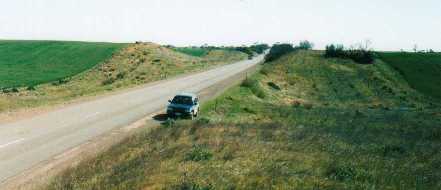
|
|
Fossil sand dunes that have not been active in the recent past.
Evidence that climates do change.
Do we want our farm lands changed back to desserts?
|
The evidence for greenhouse warming is discussed in
Greenhouse.
Very few scientists would now claim that man's actions in producing greenhouse
gasses is not having a measurable effect on the earth's climate.
In response the Howard Government has set a Mandatory Renewable Energy
Target (
MRET)
of a pathetic 1% of electricity consumption and provide yet another subsidy
to the fossil fuel industry, this time to look into the
geosequestration of carbon dioxide.
The Howard Government pretends that it is behaving responsibly in regard to
greenhouse. To know that this is false you need only consider the
following two facts:
- All fossil
fuel fired power stations in Australia have what amounts to an unlimited
license to dump their waste carbon dioxide into the atmosphere. What other
industry in the early twenty-first century has unlimited license to dump
waste anywhere?
- The Australian Mandatory Renewable Energy Target is set at about
1% of all electrical energy produced.
As of 2004 the
hottest year since accurate temperature records began (late 1800s) was
1998, the second was 2002, and the third was 2003. See Goddard Institute for
Space Studies: Surface temperature analysis.
| |
Subsidising the fossil fuel industry
There seem to be only two justifications for Australia's greenhouse stand:
the desire of the government to return a favour to big business in the fossil
fuel industry, and its blind and unflinching support for the USA.
The Federal Government subsidises the
Australian fossil fuel industry at the rate of $2B/year.
This is highly unethical, and indicates a corrupt preference
of the fossil fuel industry over alternatives; a pay-back, one must
suppose, for big political campaign donations from the fossil fuel
industry.
Also see
fossil fuel subsidy
and
corporate political donations.
In mid 2004 the Howard Government announced that it would fund research to
help reduce the greenhouse gas production of the fossil fuel industry,
including
geosequestration (the burial
of carbon dioxide). Geosequestration has never been proven to be a
practicality, and at best it hides the problem, rather than curing it. The
cost of geosequestration will, be high, possibly prohibitive,
but this is another return of a favour to the fossil fuel industry for
electoral funding support.
The International Energy Commission estimates that geosequestration of
carbon dioxide will cost from Aust$68 to Aust$83/t.
See the Clean Energy Future Report from the
Clean Energy Future Group.
Electricity generated from
hot dry rock
is likely to be much cheaper
than that from coal with geosequestration, and it is virtually
sustainable, however the Australian
government is providing much less funding for the former than for the
latter.
|
|
The mathematical
models of future climates produce various results, we can't be at all sure
what
will happen, although we do know that sudden changes (in evolutionary terms)
will almost certainly
produce an increase in the already terrible rate of extinctions of species.
The Chinese say crisis means opportunity, the Howard Government's
answer to crisis it to pretend that it doesn't exist. Australian
industry is missing out on many opportunities because of our
Government's lack of support for greenhouse-friendly technologies.
Germany has 100 times as much area under solar photovoltaic panels as does
Australia. This is in spite of the fact that a photovoltaic panel will
produce about twice as much electricity in Australia, because of our sunny
climate, than it does in Germany. Australia was once a leader in
photovoltaic research and development, we have been left far behind countries
like Japan because of the Howard Government's preference for fossil fuels.
A quote from ShortNews.com, 2007/07/30,
"Overcast Germany World's Leading Solar Power Generator
New data shows that Germany has become the world's leader for generating
solar power, despite the fact that two-thirds of the country's annual
daylight hours are spent with heavy cloud cover.
Germany produces 55 per cent of the world's photovoltaic (PV) energy,
using solar panels along the country. So far, solar power generates just
3% of Germany's total energy, but the government hopes to raise that to
27% by 2020.
A law was passed in Germany in 2000 that offers huge incentives for
companies to invest in solar power. The law, known as EEG, planned
100 000 PV panels across the country. The figure, however, currently
stands at 300 000 panels."
If the Germans can do it, Australia, with its sunny climate, could do much
better – if there was any will in government.
Following Russia's ratification of Kyoto in October 2004, the
protocol will come into force in early 2005. Australia and the USA
are the only Western countries to not ratify.
The Australian Commonwealth Government is doing much too little
to try to reduce Australia's contribution to greenhouse,
which, per-capita, is the worst in the world (with the possible exception of
the USA). By its refusal to
ratify the Kyoto agreement to limit greenhouse gas emissions, the Government
has brought Australia into disrepute. Early in the Johannesburg conference
of Aug. 2002, Australia was being called one of the Dirty Three nations
(with Canada and the USA). Before the conference finished, Canada had
agreed to ratify.
One of the excuses that the Howard Government gives for its refusal to ratify
Kyoto is that the Protocol is not the answer to the Greenhouse problem. While
this is true, Kyoto does not go far enough, Kyoto is a first step that most of
the Western nations have taken toward fixing Greenhouse. Australia has
refused to take this, partially symbolic, important first step.
A previous Minister for the Environment, Robert Hill, excused Australia's rate
of greenhouse gas production by saying that, on the grand scheme, since
Australia is not a populous nation, Australia's contribution is not great.
This might be compared to a town council that is dumping its effluent into
the Murray River excusing its action by saying that it is only a small town
and that therefore it is having a very small impact on the health of the
river. Everyone could use some form of that argument to excuse their action
in messing some community environment.
PM Howard's usual excuse in refusing to ratify Kyoto is that it is not fair
to limit the developed nations' carbon dioxide emissions while not limiting
developing nations' emissions; he particularly names India and China.
This argument neglects the fact that the
per-capita emissions of developed nations is much greater than that of the
developing nations. It also does not take into account the fact that India
and China are a long way ahead of Australia in many aspects of renewable
energy.
China
China is by far the most advanced nation in the use of
solar thermal energy; International Energy Agency (IEA) figures for 2004
showed that China had 43 400 MWth (megawatt thermal) installed; the
second nation was Japan with 5400 MWth.
In 2005 China invested US$7 billion
on renewable energy development (mostly small hydro and solar hot water),
twice as much as the USA. China's wind power targets are 5000 MW by
2010,
15 000 MW by 2015, and 30 000 MW by 2020 (Australia
had 746 MW of wind power at the end of 2005).
China has more small hydro-power than the rest of the world combined.
(China invested a further $10b large hydro-power in 2005;
this is not usually considered to be renewable energy.)
(These figures were from Renewable Energy World 2006/07.)
China had 1260 MW of wind power installed in 2006 (Wind Power Monthly).
In November 2009 China had 220 factories producing solar photovoltaic
panels, Australia had none.
India
At the end of 2005 India had 4434 MW of wind power, forth in the world,
compared to Australia's 746 MW. India is in the process of building
a 1000 MW wind farm – probably the biggest in the world when
completed, although these records change quickly –
in the state of Maharashtra, and its state of
Tamil Nadu had 2500 MW installed. (Wind Power Monthly)
At a time when governments in the rest of the world are offering steadily
more encouragement for people to install solar and other renewable power
systems the Australian Government is reducing the photovoltaic rebate.
There has been a rebate of $4 per peak Watt for solar
photovoltaic systems installed on homes. Several years ago it was capped
at $8000, then the maximum rebate was limited to $4000.
Starting at the beginning of 2006
this was steadily reduced to $3.50 per peak Watt and a maximum rebate of
$3500.
In the budget of May 2007 (before the election later in the same year)
the government brought the maximum rebate back up to $8000 (one might say,
in a cynical vote-buying exercise).
Australia is developing solar power at a fraction of the rate that it
should be. The information for the few paragraphs below was extracted
from an article by Giles Parkinson in The Bulletin of 2007/05/01...
Sydney University researcher David Mills, the architect of a new solar
thermal technology with energy storage potential and hence applicability
to base-load power generation moved to California because of lack of
government support in Australia.
University of NSW researcher Shi Zhengrong returned to the more favourable
technology climate of China to commercialise his solar technologies.
He leads the $40bn solar manufacturing company Suntech, which employs
more than 2500 in China. He is about to export his goods back to
Australia.
A decade ago Germany and Australia were installing about 5 MW of solar
capacity each year. Last year (2006), Australia installed 10 MW while
Germany installed 800 MW.
Australia's potential for solar power,
with our climate, is obviously much greater than Germany's, yet because
of the Howard Government's stand against renewable power, we are falling
well behind more progressive Germany. Even the USA, in spite of their
obstructive federal government, are embracing solar and other renewables
because of some very progressive state governments.
Australia has a climate that is eminently suitable for solar water heating.
If more solar water heaters were installed in Australian homes
(only 5% of Queensland homes have solar water heating, for example)
huge reductions in greenhouse gas production rates could be achieved.
The initial capital cost is fairly high compared to conventional water
heating, a federal government incentive is needed; even a low interest
loan would be useful. There is a government rebate, at least in South
Australia, but plainly it is not
sufficient to cause the majority of Australians to change to solar water
heating.
PM Howard and his various Ministers for the Environment talk about reducing
greenhouse gas production. Encouraging solar water heating would be one
very effective and economical way of doing this; yet we see no action!
In Australia industry is allowed to dump waste carbon dioxide into the
atmosphere adding to the enhanced greenhouse effect and climate change.
Very few countries allow their industries to dump wastes into
rivers or lakes or onto the land, why should dumping waste into the
atmosphere be any more acceptable?
The Howard Australian government has refused to place a tax on carbon
because it says that to do so would damage Australia's economy.
It could equally well be argued, truly, that taxing anything damages
Australia's economy; but taxes have to be raised to run public services
and build state infrastructure.
Taxes are unavoidable and greenhouse gas production has to be reduced.
Combining the two is logical.
If a tax was to be placed on all carbon in fuels, either mined or
imported, then an equal amount of tax could be taken off in other areas
to make the exercise tax-neutral.
Another page covers this topic in greater
depth.
Also see
Fossil fuel electricity in perspective and
No level playing field.
Prime Minister John Howard has often said that he will not do anything to
jeopardise the coal industry because there are too many jobs involved.
He conveniently neglects the number of jobs that would be created in
the renewable energy industry that would replace the lost coal industry.
A quote from an article by Giles Parkinson in The Bulletin, of 2007/05/01...
Susan Jeanes, executive director of the Australian Renewable Energy
Association, says suggestions that action on climate change would have a net
loss of jobs were "just rubbish". She points out that wind power is
actually more labour intensive than coal, and requires 2.5 time more
units of labour for every MW of electricity produced.
With a potential 6000 MW of wind capacity on hold, as opposed to just
800 MW installed, that
translates into thousands of lost job opportunities in this country alone.
The same journal quoted Michael Müller, German parliamentary state
secretary at the federal Ministry for the Environment as saying,
"Renewable energies are an asset for Germany in terms of economic growth
and employment".
In early 2007 the Howard Government seems willing to accept only one
alternative to fossil fuels: nuclear power.
Why the blindness to sustainable power?
I can only suppose that there are two factors here:
- PM Howard has fixed in his mind the idea that anything sustainable is
'left-wing greeny nonsense' and must be avoided;
- Howard totally dominates the Parliamentary Liberal party to the point
where his ideas, even those that are outdated and/or
quite wrong, are accepted without serious questioning.
Nuclear power should be considered as an alternative to fossil fuels, but
should not be given priority over sustainable alternatives.
Sustainable options should be favoured because they are sustainable
while nuclear is not, they can be brought on-line much more quickly
than nuclear, they are more decentralised than nuclear,
and because they do not leave the long-term
problems associated with nuclear: that is,
- The very high cost of decommissioning old nuclear power stations;
- The possibility of some of the elements and/or isotopes created in the
reactors being diverted for weapons, dirty bombs, etc;
- The unresolved problems of the disposal of nuclear waste.
Another factor that must be taken into consideration, but seems almost
universally neglected, is that nuclear power
stations will provide a target for terrorist attack and also for an enemy
in any future conventional or nuclear war. A bombed nuclear power station
would release far more radioactive material into the environment than a
nuclear weapon. (There are many tonnes of highly radioactive materials in
any nuclear power reactor that has been running for a considerable
period, at most only a few tonnes are produced by a nuclear weapon.)
Nuclear power stations make a much better target than solar or wind power
stations in war time because so much can be destroyed by one or a few
well aimed bombs. Solar and wind power must be, by their nature, spread
over large areas; a single bomb can destroy, at most, one wind turbine or a
few solar collector panels.
The following quote is from an article in The Advertiser by Clive Hamilton
in early May 2007...
In 2001 at the Pacific Island Forum in Samoa 15 nations, including New
Zealand, tried to include reference to "environmental refugees" and
compensation for people affected by climate change in a statement to the
World Summit on Sustainable Development.
Outnumbered 15-1, Australia nevertheless insisted the reference be removed.
After a tense stand-off the 15 nations backed down.
Obviously there will be many environmental refugees from Pacific islands
(and other places, especially the very densely populated great river
deltas) due to rising sea levels.
The Australian government wants to keep public attention off this as much
as it can.
Australia has the per-capita highest rate of greenhouse gas production
in the world. As the worst offender in climate change Australia, can
expect to have to pay greenhouse refugees huge compensation of one sort
or another in the future. The compensation might be financial, or it
might be in providing an alternative place for the millions to live.
There will be many millions of refugees from places like Bangladesh
(Ganges delta), Egypt (Nile delta), and Vietnam (Mekong and Red River
deltas). In Clive Hamilton's article he estimated 200 million to 450
million people likely to be affected by rising sea levels.
As discussed in
The Real USA, Australian
Commonwealth Governments have for years toadied to USA Governments.
Why? The US has a terrible moral record, and what has it ever done for
Australia? (Oh yes, without the USA Australia would have been invaded
by the Japanese; but they had to fight the Japanese, they had been
attacked too.
We helped them as much as they helped us – in proportion to
our populations; and that was more than 50 years ago anyway.)
Australia owes nothing to the USA, yet our Prime Ministers, in particular,
seem to consider themselves (and us) to be at the beck and call of
American Presidents. This has lowered international respect for
Australia, and those who consider themselves as the enemies of the USA,
often for good reason, are likely to also consider themselves to be
the enemies of Australia.
The Australian Government, like the US Government, when speaking about the
current conflict between Israel and Palestine, is very pro-Israel.
When discussing the killing of Israelis by Palestinian suicide bombers
they seem to forget that many more Palestinians have been killed by
the Israeli army. When discussing the Palestinians illegally importing
weapons they seem to forget that the Israelis are legally importing more
and bigger weapons. When discussing any part of the issue they seem to
forget the key point, Israel is, and has for decades, illegally occupied
Palestine; the Palestinians are fighting for a free nation the only way
they can.
With the very strong Jewish lobby in the USA one can understand, but not
condone, the bias of the USA. Why the bias in the view of the
Australian Government? Another case of its attempting to curry favour
from the Americans?
Also, governments, it seems, tend to support other governments. Governments,
generally, do not support freedom fighters (who generally fight
against one or more governments and may or may not be
terrorists). I suppose it's a case of 'you scratch my back and I'll
scratch yours'. Another case of morality being forgotten for the sake
of expediency.
Speculation
I suspect that nations grow most quickly economically when people
are allowed, perhaps encouraged, to amass personal fortunes by
exploiting others.
The forced sharing of wealth, on the other hand, probably slows
economic growth.
If this is so, then should one look for a balance
between the growth produced by rampant greed on one hand and the
forcing of wealth sharing and social justice on the other, or
should it be accepted that there will be alternating periods of
greed-induced growth and social justice?
At least two other questions need be asked. Is economic growth
essential, and how can the environment be protected in these
alternatives?
|
The rich in Australia are getting richer and at the same time there
are an increasing number of people who are living in poverty.
Wealth brings with it power. Wealthy people have more influence and
political power than do poor people. This makes it relatively easy for
rich people to become richer at the expense of poor people. It is the
duty of governments to reduce the gap; Australian governments
have failed in this duty for the past several decades.
An example of Government looking after the rich
Duty free alcohol
The quantity of duty free alcohol that can be brought into Australia
by international travellers has been doubled in recent years, it is
now about 2.125L. Since
it is the wealthy who most frequently travel overseas it is the
wealthy who gain by this change; they can avoid paying as much
excise as they would, had they bought their booze in Australia.
For example, a business man or a federal member of parliament who
might travel overseas twice a year would be able to buy all his
spirits duty free.
The poor can't avoid paying excise on their booze because they
can't afford to travel overseas.
This is simply a tax avoidance method that has been made available
to the rich and denied to the poor.
Of course cabinet ministers travel overseas as often as anyone.
Big businesses donate large sums of money to political parties;
often the same multi-national company
will make donations to both of the two major opposing
parties. The citizens are content to allow this on the grounds
that it is better that business pays for political campaigns than
those costs coming out of taxes; but is it? The managers of big
businesses are not stupid; they would not make donations unless
they believed that they would get favours in return.
The federal government's immoral support for the fossil fuel
industries (and relative neglect of greenhouse friendly industries)
must be repayment for favours received from the former; what other
reasonable explanation is there.
Corporate political donations are a form of corruption and they are a means
that the wealthy use to obtain more power. It is unlikely that
the big political parties will put a stop to corporate political donations
without being forced to, because the practice advantages big
parties over small parties and independent members of parliament.
The rate of destruction of native scrub in Australia is among the highest
in the world; it is much worse in Queensland than in any other state.
Destruction of old growth forest continues in several Australian states;
although I believe it has recently been greatly reduced in WA.
Removing woody perennials in the past has caused soil salinisation in
many parts of Australia in the past, it seems incredibly naive, if not
stupid, to assume that continuing to clear scrub will not cause even
more. Clear felling of old growth forests and scrub clearing both
reduce biodiversity.
I suspect that we will not realize the full importance of biodiversity
for many years, and then, of course, it will be too late.
These are matters for Commonwealth and state governments, neither have
done enough.
China has committed and possibly still is committing genocide in Tibet.
China has taken freedom away from Tibetans and is flooding the
country with Han Chinese immigrants.
The Australian government is not willing to say a word against the
numerous abuses of human rights that China is committing in Tibet;
there is too much money to be made by trading with China to risk
upsetting the Chines government.
Morality takes a poor second place to profits.
In late 2004 a new National Water Commission is being set up by
the federal government. That seems like a good move, but the
government intends that the proposed commission not be allowed to
release any information on the state of Australia's water supplies
without ministerial approval.
So we Australian citizens will not be told about the health
of our water supplies by our tax-payer-funded
commission unless it is politically convenient to the Howard
government for us to know.
|
A quote from Winston Churchill
"The power of the executive to cast a man into prison without
formulating any charge known to the law, and particularly to
deny him the judgment of his peers, is in the highest degree
odious, and the foundation of all totalitarian government
whether Nazi or Communist."
|
David Hicks and Mamdouh Habib are Australians who were captured by the US
with Taliban soldiers in Afghanistan in 2001.
Both were held under inhumane conditions in Guantanamo Bay, Cuba for a
number of years.
Neither ever had a fair trial; Hicks at least was tortured by US soldiers.
Habib was eventually released without charge.
Hicks pled guilty to a charge of providing material suport to terrorism,
a 'crime' trumped-up while he was held in Guantanamo Bay.
There is little doubt that he only pled guilty because he was promised
release to Australia in return.
The Howard Australian Government did nothing to demand these men's
rights as Australian citizens and human beings, preferring instead to
toady to the George W. Bush administration.
In October 2003 a Red Cross official took the very unusual step of
publicly expressing his concern about the conditions under which
the prisoners are being held at Guantanamo Bay.
The Howard Government continued to do nothing.
In November 2003 Foreign Minister Alexander Downer said that if
Hicks and Habib were brought back to Australia they could not be
tried, the government would have to release them. Apparently he
believes that they are not guilty of anything under Australian
law, yet he is happy to have them locked up without charge in
an American prison! Is there any morality in this? I can't see
it.
The Federal Environment Minister, Ian Campbell, vetoed the Bald Hills
wind farm in Victoria's Gippsland because, he claimed, it added to the risk
to the endangered orange-bellied parrot.
That the parrot is endangered is not in dispute. That the wind farm posed
any risk to the small remaining population of parrots is very questionable.
I will confine my comments to two quotes:
- Rob Hulls, Victorian Planning Minister:
- "There is a potential for one dead parrot every 1000 years"
- Clive Hamilton, The Australia Institute:
- "Really, the minister is a disgrace. He's not Minister for the
Environment, he's the minister against the environment."
For more information,
The Australian had an article on this
dated 2006/04/21, and the ABC's
7.30 report
discussed it on 2006/04/17.
A whistleblower and former Customs officer,
Allan Robert
Kessing, was found guilty of leaking two
classified reports and faces a possible several years in jail.
A quote from The Australian of March 29, 2007:
"The revelations Kessing was convicted of leaking were of massive public
interest when they appeared in The Australian on May 31, 2005. They exposed
flaws in security at Sydney airport, including the operation of organised
crime and surveillance black spots, prompting the federal Government to
appoint British security expert John Wheeler to examine aviation security.
The result was more than $200 million spent on airport police commands,
strike teams and better surveillance.
The prospect of jail and the cost of defending the charges has been
devastating for the 59-year-old retired public servant who has spent
$40,000 – more than half of his superannuation nest egg – in
legal costs."
The reports that Kessing leaked
had been ignored by the officials of the Customs Service for
several years. The information obviously had to be made public so that it
could be acted upon. Kessing did the public a huge favour and now it seems
he will be jailed for doing his duty to the Australian people.
Australia's public servants must have the right to
speak out
when it is in the public's interest that they do so.
At present Public Servants serve the departments and/or the ministers;
they should serve the public.
Thank you Allan Kessing. All Australians are in your debt.
The Howard government is obviously addicted to coal, but it is also sadly
lacking in foresight. The world is running out of petroleum. It doesn't
take a genius to see that there will be a future for producing liquid fuels
from coal (coal liquefaction). China is investing big money in it. The
Australian government seems to be completely neglecting it.
Of course coal liquefaction is highly undesirable from the greenhouse
gasses angle, it results in even greater levels of CO2 production per unit
usable energy than the direct burning of coal as a fuel.
With PM Howard's reaction to the report that stated child molestation
was a problem at crisis level in Aboriginal communities I wonder if he
learned anything from the
Iraq war.
In both situations he used similar strategies: invasion, send in the
troops!
Is this likely to produce the needed results?
I believe the NT government pointed out the magnitude of the problem a
year earlier and asked for federal help in controlling it; the Feds
didn't respond then.
It rather looks like this response is more to do with trying to win
votes than fix problems.
What are the primary causes of the problems in Aboriginal communities?
Surely you'd have to say that they were things like lack of education
and lack of employment.
The first, of course, tends to lead to the second.
The lack of employment leads to a feeling of uselessness, inferiority,
and a lot of time to be used up in some way other than working at a job.
Will sending in police and troops improve the percentage of Aboriginal
kids who go to school?
Will it provide more useful employment for adolescents and adults on
the Aboriginal lands?
Will it give the people more self respect?
It seems to me that what is needed is not a once-off send-in-the-troops
reaction, but rather a long-term commitment to getting more Aboriginal
kids in schools and getting more Aboriginal adolescents and adults
into useful and productive jobs.
That's not going to be easy.
It's not the sort of thing you can do all at once in a way that will
impress the voters.
